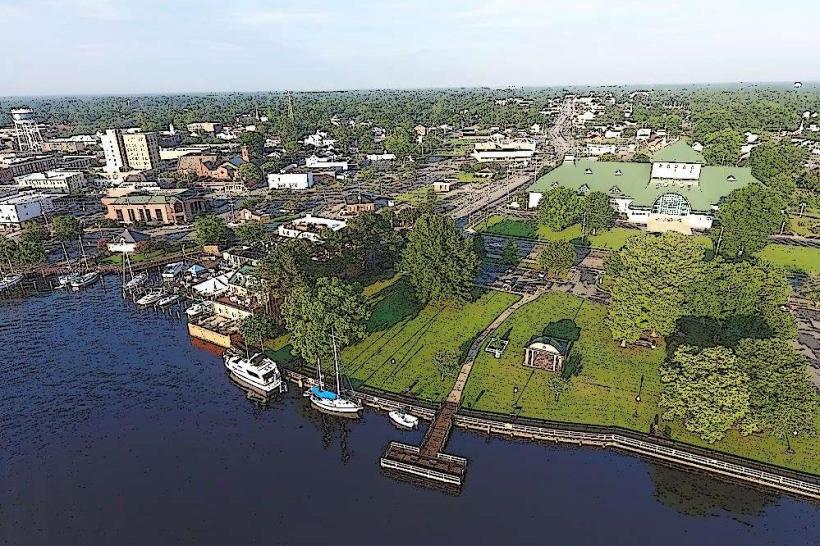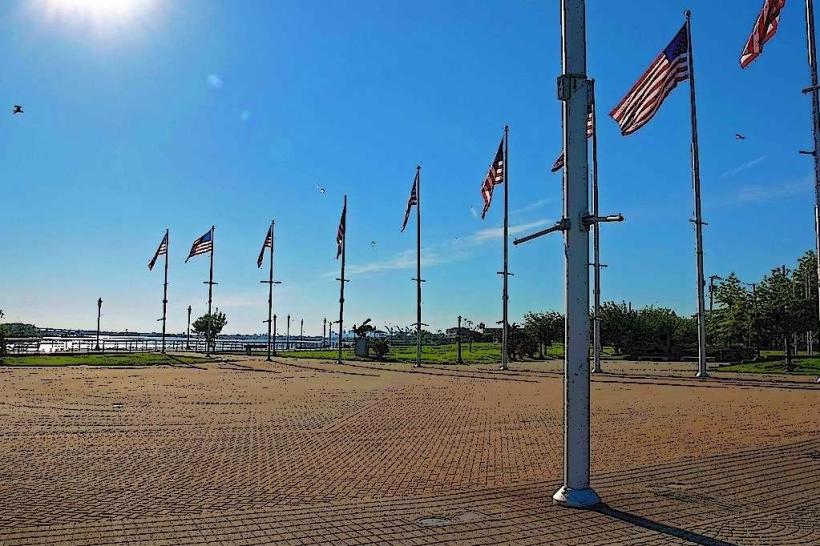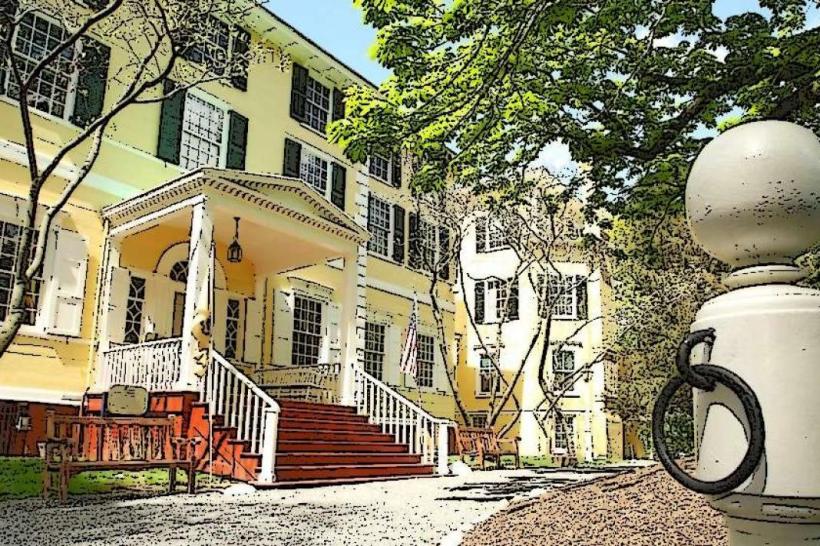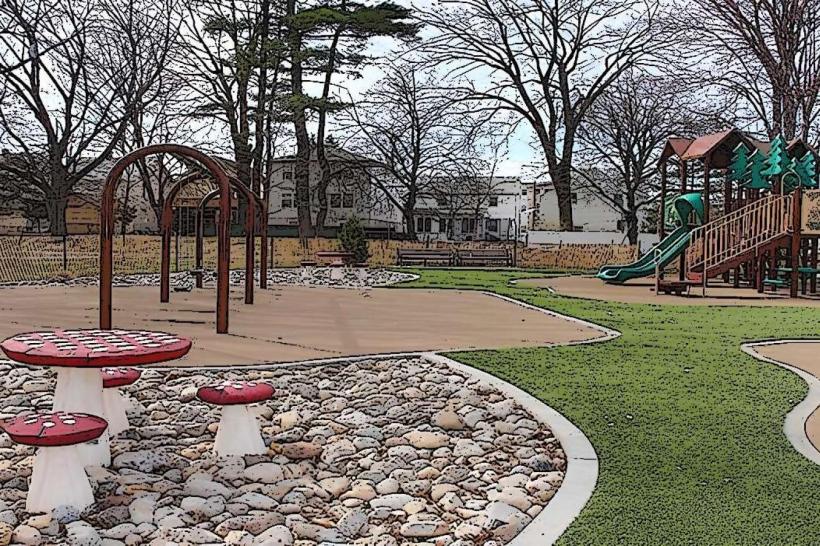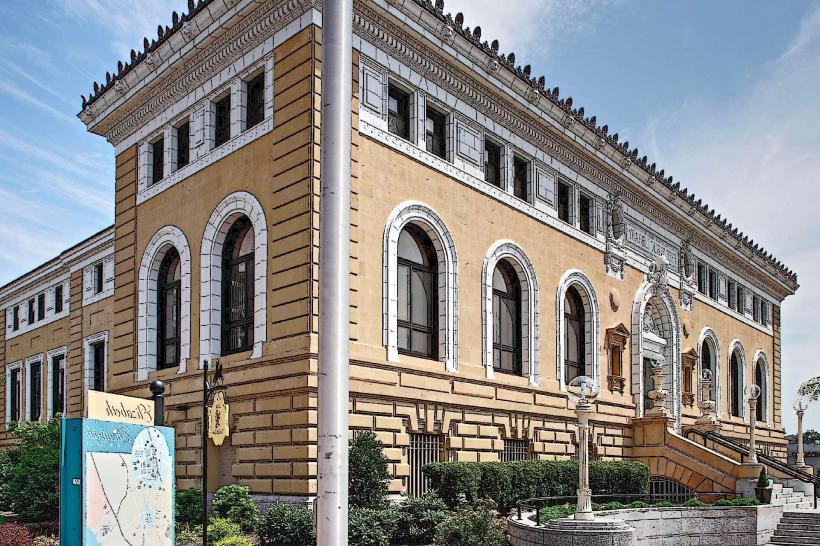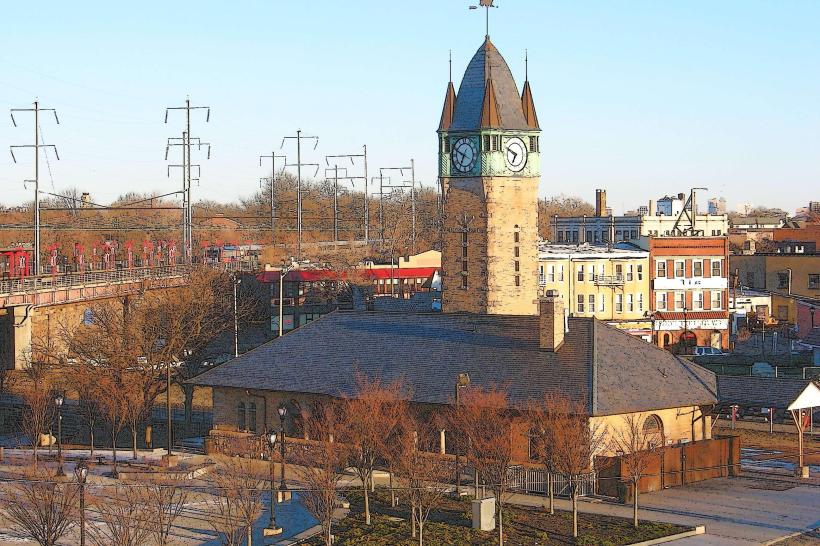Information
Landmark: Mid‑Town Historic DistrictCity: Elizabeth
Country: USA New Jersey
Continent: North America
Mid‑Town Historic District, Elizabeth, USA New Jersey, North America
The Mid‑Town Historic District in Elizabeth, New Jersey is the cultural and architectural heart of the city. It is a historically preserved area encompassing a dynamic mix of late 19th- and early 20th-century architecture, prominent civic buildings, religious institutions, entertainment venues, and public art installations. Officially listed on the National Register of Historic Places since 1995, this 55-acre district is an integral part of Union County's heritage and urban identity.
📍 Boundaries and Layout
The Mid‑Town Historic District is centrally located and stretches across much of Elizabeth’s downtown. Its boundaries generally include:
Broad Street (north-south axis)
East Jersey Street and East Grand Street (east-west corridors)
Elizabeth Avenue, Julian Place, and nearby connecting streets
The district contains over 100 contributing structures, each significant either for its architectural detail, cultural purpose, or contribution to Elizabeth’s urban evolution.
🏛️ Notable Structures and Architectural Styles
1. Union County Courthouse Complex (2 Broad Street)
Completed: 1931
Style: Neoclassical
Features: A towering 17-story structure with Corinthian columns, ornate granite façade, and a rotunda interior
Function: Seat of county government, still operational
2. Hersch Tower (25 East Jersey Street)
Built: 1931
Style: Art Deco
Significance: One of Elizabeth’s first high-rises; designed with vertical window ribbons, geometric detailing, and decorative setbacks
Status: Converted for mixed-use purposes including offices and possible residential spaces
3. Ritz Theatre and Performing Arts Center (1148 East Jersey Street)
Built: 1926
Style: Spanish Renaissance / Art Deco
History: Originally a vaudeville theater; later a movie palace; now revitalized for concerts, live theater, and dance performances
Capacity: Approximately 2,800 seats
Cultural Role: A landmark arts venue hosting community and professional events
4. First Presbyterian Church of Elizabeth
Founded: 1664 (original structure), current building dates to 1783
Style: Georgian with Federal detailing
Importance: Burial site of Revolutionary War figures, once used as a hospital during the war
Landmark: On the National Register independently
5. St. John’s Episcopal Church (Broad & Division Streets)
Constructed: 1860s
Style: Gothic Revival
Feature: Stone façade, lancet stained-glass windows, and an iconic bell tower
🎨 Public Art and Cultural Life
The Mid‑Town Historic District has embraced public art and urban revitalization through city initiatives like the Elizabeth Renaissance Foundation. Notable efforts include:
Murals depicting historic events, prominent locals, and abstract concepts of growth and identity
Julian Kean Mural, celebrating Liberty Hall, steam trains, and local industrial roots
Revitalizing Midtown mural series near Broad Street, showcasing the artistic rebirth of the district
“Union” mural on Morris Avenue, integrating symbols of Elizabeth’s diversity and history
The Street Art Mural Tour is a curated walking path across downtown, highlighting dozens of murals by regional artists. These pieces are often paired with historical signage, fusing art with education.
🗺️ Historic Walking Tours and Interpretation
To help residents and visitors engage with the area, the city offers:
Historic Heartline Tour: A 3.5-mile guided path with QR codes at major points of interest, narrating the story of each site
Interpretive Markers: Throughout Broad Street and East Jersey Street, placards explain each building’s significance
🏙️ Urban Function and Revitalization
The district serves as Elizabeth’s primary civic and cultural center, housing city offices, courts, religious centers, schools, and performing arts venues.
It has seen waves of revitalization aimed at preserving historic facades while modernizing interiors for new functions like tech offices, galleries, co-working spaces, and small businesses.
Mixed-use development encourages residential living within historic buildings, fostering a “live-work-walk” environment.
🚉 Accessibility and Transportation
Transit-Oriented Development: The Mid‑Town Historic District is directly served by NJ Transit’s Elizabeth Station, connecting to Newark and Manhattan via the Northeast Corridor.
Bus Routes: Multiple lines serve the area, providing easy access to nearby neighborhoods, schools, and shopping.
Walkability: Wide sidewalks, pedestrian plazas, and public benches make the area ideal for cultural tourism and casual strolling.
🌟 Summary of Significance
The Mid‑Town Historic District in Elizabeth is not just a preserved collection of old buildings-it is a vibrant, evolving neighborhood where architecture, art, and civic life intersect. Its Art Deco and Neoclassical landmarks, coupled with robust public art programming, make it both a visual and cultural centerpiece of Union County. As a walkable and transit-accessible area, it continues to serve as the gateway into Elizabeth’s past and its artistic, inclusive future.

